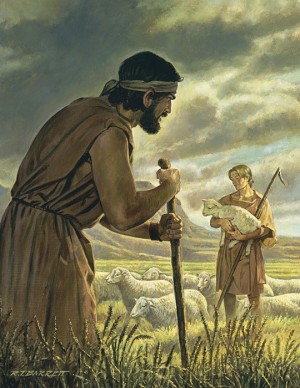It is important to know before embarking on a serious study of Calvinism that Calvinism goes by various names.
Sometimes it is called “The Doctrines of Grace” and other times it is referred to as “Reformed Theology.”

This sort of terminology reveals, in my opinion, the pride and arrogance of some Calvinists,for despite the claims of some Calvinists, many people who are not Calvinists still believe in grace, and not all the Reformers were Calvinistic.
Calvinists also like to claim that Calvinism is equivalent to the gospel, and that there is no such thing as biblical Christianity that is not Calvinistic. All I can do is shake my head at such statements…
Anyway, you should know that if you hear people talking about “the Doctrines of Grace” or “Reformed Theology” they are probably referring to Calvinism.
Nevertheless, I believe it is inaccurate for Calvinists to attempt to appropriate the words “grace” and “reformed” for their own system of theology, especially when, in my opinion, many Calvinists know less of grace than their opponents, and numerous others have stopped seeking further theological reformation.
Though I am not a Calvinist, I hold to radical, outrageous, scandalous grace (a grace which is more gracious than the grace of many Calvinists), and I believe that as fallen and sinful human beings, we should always be about the work of reforming ourselves and our theology and never consider ourselves fully reformed.
So despite the tendency of some to refer to Calvinism as “The Doctrines of Grace” or “Reformed Theology,” I reject both titles as misleading and inaccurate.

In the posts that follow I hope to show that while I am not a Calvinist, I stand fully within the Reformation emphases of grace, faith, Jesus Christ, Scripture, and the glory of God.
Though I have sometimes joked that I am a two-and-a-half point Calvinist, it is only because I hold to half of each point of Calvinism, which is really no Calvinism at all.
I believe in depravity, but not total depravity.
I believe in election, but not unconditional election.
I believe in the atonement, but not limited atonement.
I believe in grace, but not irresistible grace.
I believe we are saints, but not in the perseverance of the saints.



 Several years after John Calvin died in 1564 (click here to see a
Several years after John Calvin died in 1564 (click here to see a 
 God must be in control, and God must accomplish everything, from first to last, if humans are to have any hope of salvation, and if God is to be certain of defeating sin, death, and the devil in the ultimate end.
God must be in control, and God must accomplish everything, from first to last, if humans are to have any hope of salvation, and if God is to be certain of defeating sin, death, and the devil in the ultimate end.

 During the time, the church in Geneva dwindled in size, and was facing pressure by the Roman Catholic Church to return to Catholicism. By way of response, the Genevan church called upon Calvin to write a letter in their defense, which he gladly did. They were so pleased with his letter, they asked him to return to Geneva and take up the pastoral position once again.
During the time, the church in Geneva dwindled in size, and was facing pressure by the Roman Catholic Church to return to Catholicism. By way of response, the Genevan church called upon Calvin to write a letter in their defense, which he gladly did. They were so pleased with his letter, they asked him to return to Geneva and take up the pastoral position once again. Over the next two years, his power and fame grew as never before, and in 1555, all who had previously opposed John Calvin either fled Geneva or were rounded up and executed.
Over the next two years, his power and fame grew as never before, and in 1555, all who had previously opposed John Calvin either fled Geneva or were rounded up and executed.



 God gently rebukes Cain and tells him he is already accepted and loved, that nothing is required. All God wants is for Cain to live well, to do what is right. If he doesn’t do what is right, rather than being the savior of his family, Cain will fall into the same trap that his parents had fallen into, and will become prey to sin. In fact, God warns Cain that sin is already crouching at Cain’s door, seeking to devour him.
God gently rebukes Cain and tells him he is already accepted and loved, that nothing is required. All God wants is for Cain to live well, to do what is right. If he doesn’t do what is right, rather than being the savior of his family, Cain will fall into the same trap that his parents had fallen into, and will become prey to sin. In fact, God warns Cain that sin is already crouching at Cain’s door, seeking to devour him. 